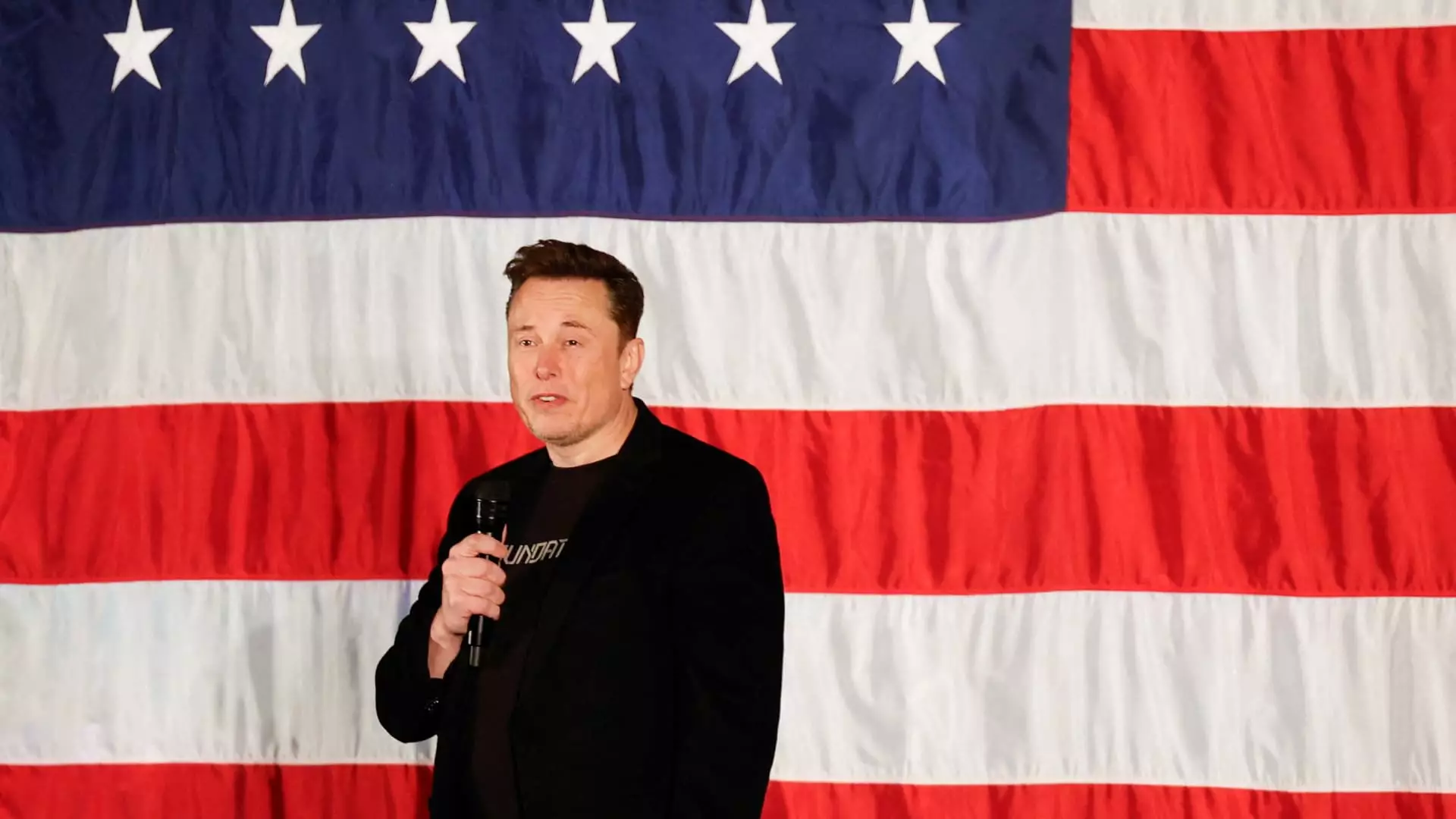Elon Musk, the billionaire entrepreneur and influencer, once again finds himself at the center of controversy, this time over a political action committee’s ambitious $1 million daily giveaway scheme targeting registered voters in Pennsylvania. The Federal Court’s recent decision to remand the case back to state court has sparked a renewed focus on the legality and ethical implications of such a lottery, repeated accusations of voter manipulation, and potential violations of state law, all of which underscore the complexities surrounding large-scale political initiatives in contentious election periods.
The proceedings emerged from a lawsuit filed by Philadelphia District Attorney Larry Krasner, who alleges that Musk’s America PAC is running an illegal lottery while attempting to swing the upcoming presidential election in favor of Donald Trump. With accusations that the PAC’s actions contravene state consumer protection laws, the legal battle has taken on heightened urgency, particularly as election day approaches. Musk’s initiative is seen not just as a campaign gimmick but as a potential avenue for distorting electoral integrity, given that the prizes are contingent upon voter engagement with his petitions supporting the U.S. Constitution.
Musk’s plan stipulates awarding $1 million daily to participants from seven key swing states, including Pennsylvania, who express support through signed petitions. The first winners, all from Pennsylvania, underscore the initiative’s targeting of crucial voter demographics. This monetary lure raises ethical questions about the underlying intent—whether it genuinely aims at civic engagement or merely seeks to buy influence amidst a fiercely competitive political landscape.
On October 19, Musk announced the initiative, triggering immediate legal pushback from Krasner. Following the lawsuit’s inception in Pennsylvania’s Court of Common Pleas, Musk’s legal team sought to shift the case to federal jurisdiction, arguing that its connections to the presidential election warranted this relocation. However, U.S. District Judge Gerald Pappert ruled against these claims, emphasizing that the determination of jurisdiction should focus on the nature of the legal issues rather than the motivations of the litigant.
In Pappert’s findings, he pointed out that the core of Krasner’s claims stems from state law, and thus, there was no basis for federal jurisdiction. The remand is viewed as a victory for Krasner’s office, allowing for a potentially expedited hearing in state court that could lead to a halt of the lottery. This rapid jurisdictional shift highlights the often-confounding interplay between state and federal legal systems, especially in politically-charged cases where major figures push the boundaries of legality.
The implications of Musk’s announced lottery reach far beyond simple legal considerations; they encompass significant political ramifications as well. By backing Trump, Musk’s actions could be interpreted as an attempt to use his wealth and influence to manipulate the electoral process while undermining the democratic principle of fair competition. The juxtaposition of a billionaire’s largesse and the electoral process conjures images of political patronage, breeding skepticism among voters and officials alike.
Krasner’s office has signaled an intent to swiftly address these concerns, echoing public sentiment that such initiatives represent attempts at ‘influence peddling.’ As they await a scheduling decision from the state court regarding the emergency injunction against the lottery, it becomes critical to not only assess the legal repercussions but also to gauge how this case reflects broader trends of wealth and power affecting democracy.
As the saga unfolds, the re-entry of the case into state court emphasizes the importance of maintaining legal integrity in the electoral process. Krasner and his legal team are poised to act quickly, hoping to secure a legal ruling that could quash Musk’s financial incentives to voters. The outcome of this legal challenge may not only affect Musk’s lottery initiative but could also set critical precedents regarding the intersection of wealth, politics, and law.
As this legal battle continues to develop, it is essential for the electorate and political leaders to remain vigilant. The complexities of modern campaign strategies now often involve the interplay between tradition and innovation, legality and ethics. The case serves as a stark reminder that money can buy attention, but it cannot substitute for the foundational needs of trust and credibility in the democratic process.

Leave a Reply